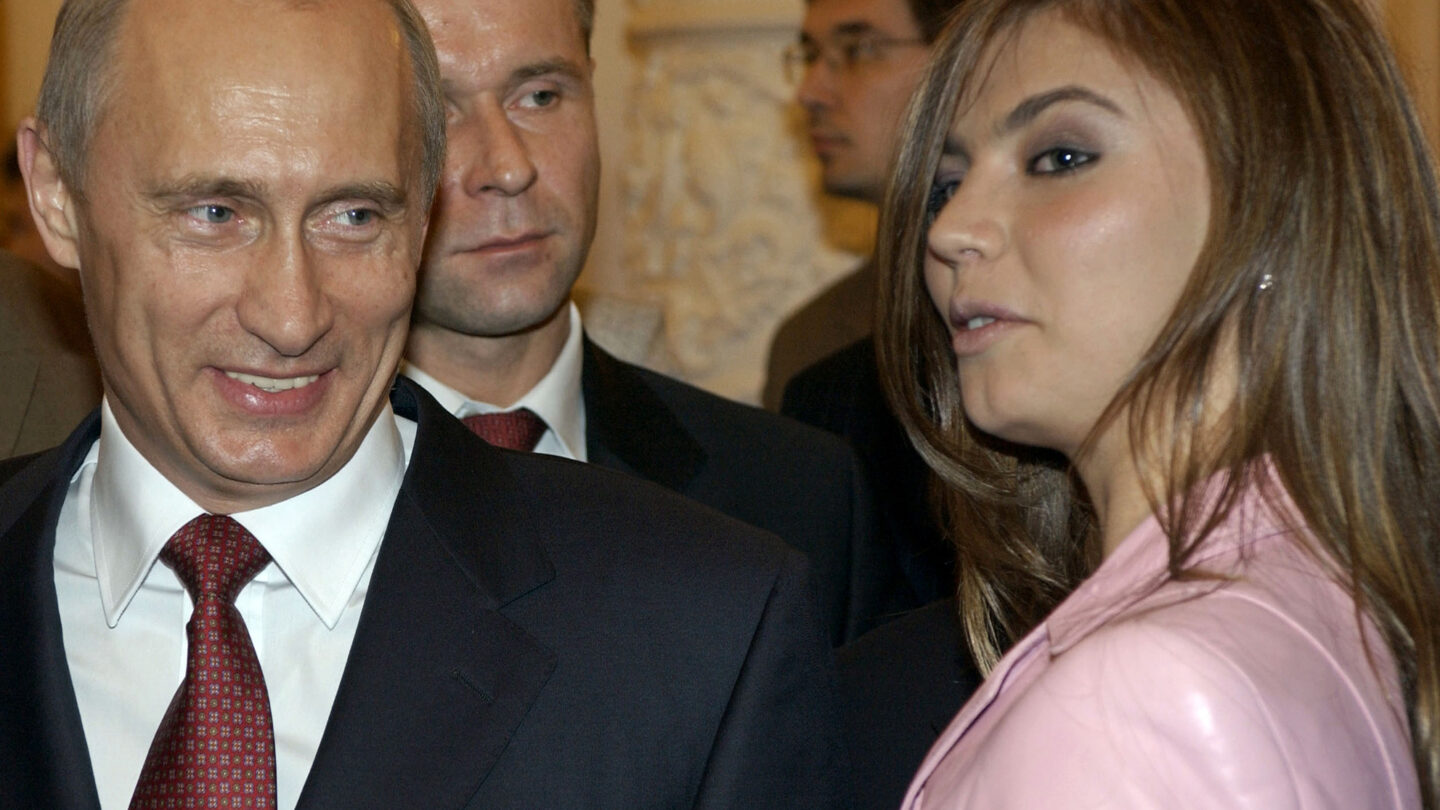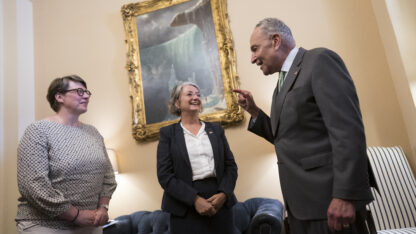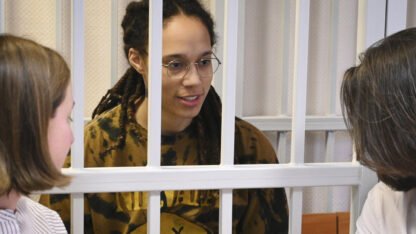The U.S. has brought sanctions against the former Olympic gymnast who is long-rumored to be the romantic partner of Russian President Vladimir Putin — adding the person known as “Russia’s most flexible woman” to the growing list of individuals to face financial penalties in response to the Russian invasion of Ukraine.
Alina Kabaeva, 39, has been romantically linked to Putin, 69, for more than a decade and is thought to have had at least three children with him. In announcing sanctions against her on Tuesday, the Treasury Department said “Kabaeva has a close relationship to Putin” and that she was being targeted as part of an effort to “impose severe costs for those who support President Vladimir Putin’s war.”
“As innocent people suffer from Russia’s illegal war of aggression, Putin’s allies have enriched themselves and funded opulent lifestyles,” said Treasury Secretary Janet Yellen in a statement. “The Treasury Department will use every tool at our disposal to make sure that Russian elites and the Kremlin’s enablers are held accountable for their complicity in a war that has cost countless lives.”
While the Kremlin has long denied any relationship between Kabaeva and Putin, rumors of their partnership date back more than a decade. Here’s some of what we know about them.
She was a gymnastics star, but was once banned for doping
Kabaeva is one of the most decorated rhythmic gymnasts in Russian history. She took up the sport at the age of 4 and would eventually go on to win 21 European Championship medals, 14 World Championship medals and two Olympic medals, including a gold at the 2004 Games in Athens. Her signature move, known as the “Kabaeva,” helped her earn the nickname “Russia’s most flexible woman.”
Her career was not without controversy, though. In 2001, she tested positive at the Goodwill Games in Australia for the banned substance furosemide — a diuretic sometimes used by athletes to lose weight or to hide the use of other drugs. She denied doping and said the substance came from a tainted pill she bought at a local pharmacy. Nevertheless, she was briefly banned from competition and forced to return her medals from the 2001 World Championship in Madrid.
She went into politics, then the media business
Kabaeva retired from professional gymnastics around 2007 and decided to enter politics. She was selected for a seat in the lower house of parliament, where she served as a member of Putin’s United Russia party. In parliament, she was a leading advocate for a law that deprived many Russian orphans the opportunity to be adopted abroad.
In 2014, she left politics to serve as chairwoman of Russia’s New Media Group, which the U.S. describes as “a pro-Kremlin empire of television, radio, and print organizations.” For months, Kremlin critics have accused the organization of framing Western commentary on the Ukraine invasion as a disinformation campaign. She was appointed to the job despite limited experience in the industry beyond hosting a TV talk show.
Putin and Kabaeva do not discuss the relationship
Kabaeva has denied a relationship with Putin, and Putin has similarly never acknowledged any such partnership. In 2008, the famously private Russian president was asked about Kabaeva during a news conference in Italy with Silvio Berlusconi, then the country’s prime minister-elect.
“I am, of course, aware of the cliché that politicians live in glass houses, but even in these cases, there must be some limits,” Putin said while dismissing the rumors. “I always disliked people who go around with their erotic fantasies, sticking their snot-ridden noses into another person’s life,” he continued.
Berlusconi, standing next to Putin, then mimed shooting the reporter who asked the question with an imaginary machine gun.
The question came just days after The Moskovsky Korrespondent, a Russian tabloid owned by a former Soviet intelligence officer, reported that Putin planned to marry Kabaeva. The paper was soon suspended “for financial reasons” and never resumed operation.
The sanctions may not have much effect
Kabaeva is just the latest individual in Putin’s orbit to face sanctions in retaliation for the war in Ukraine. Since the launch of the Russian invasion in February, the U.S. has announced sanctions against a wide range of Russian banks and businesses, Putin associates and even two of his adult daughters.
But at this point in the war, it’s unclear how far sanctions against any one individual will go to deter Putin, says Rachel Ziemba, an adjunct senior fellow at the Center for a New American Security. Ziemba says there’s little to suggest Kabaeva even has financial assets in the U.S., and in the aftermath of similar sanctions against her by both the U.K. and European Union, she has likely “prepared for the risk” of penalty by the U.S.
“The idea is that by targeting people close to Putin himself, that it will make his life and those close to him more difficult, which might lead to them to sort of change policy,” Ziemba said. “The ship has probably sailed on that one.”
Copyright 2022 NPR. To see more, visit https://www.npr.org.
9(MDAxODM0MDY4MDEyMTY4NDA3MzI3YjkzMw004))

9(MDAxODM0MDY4MDEyMTY4NDA3MzI3YjkzMw004))








